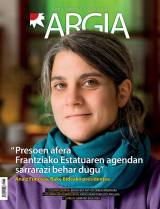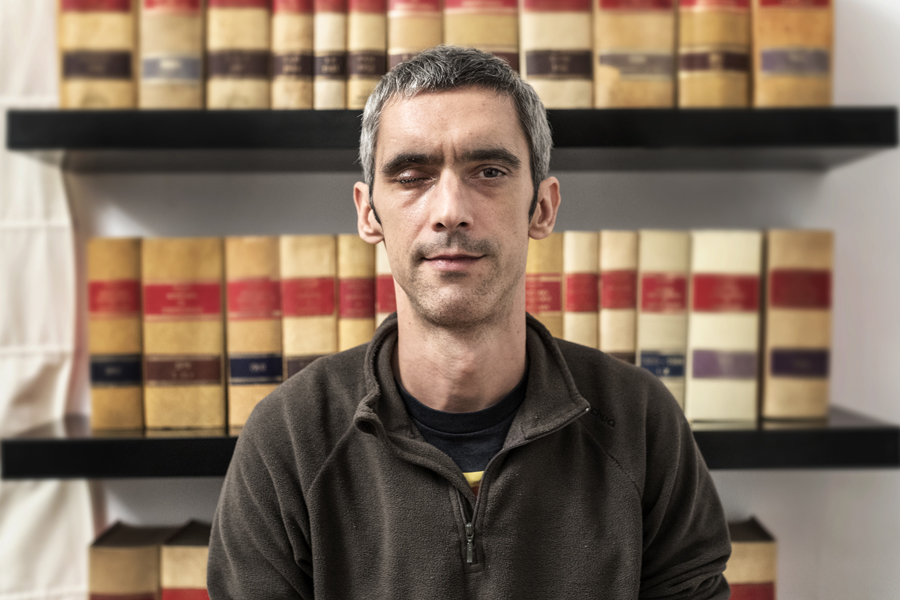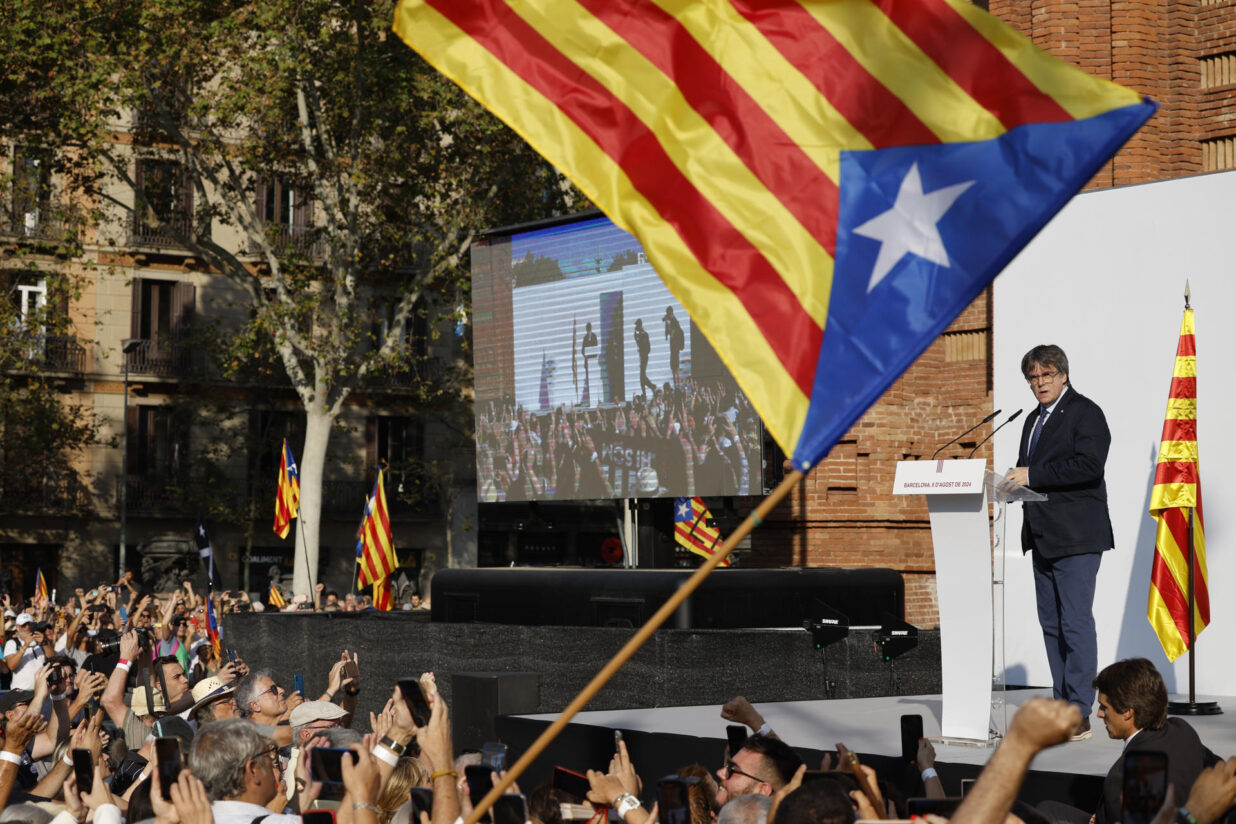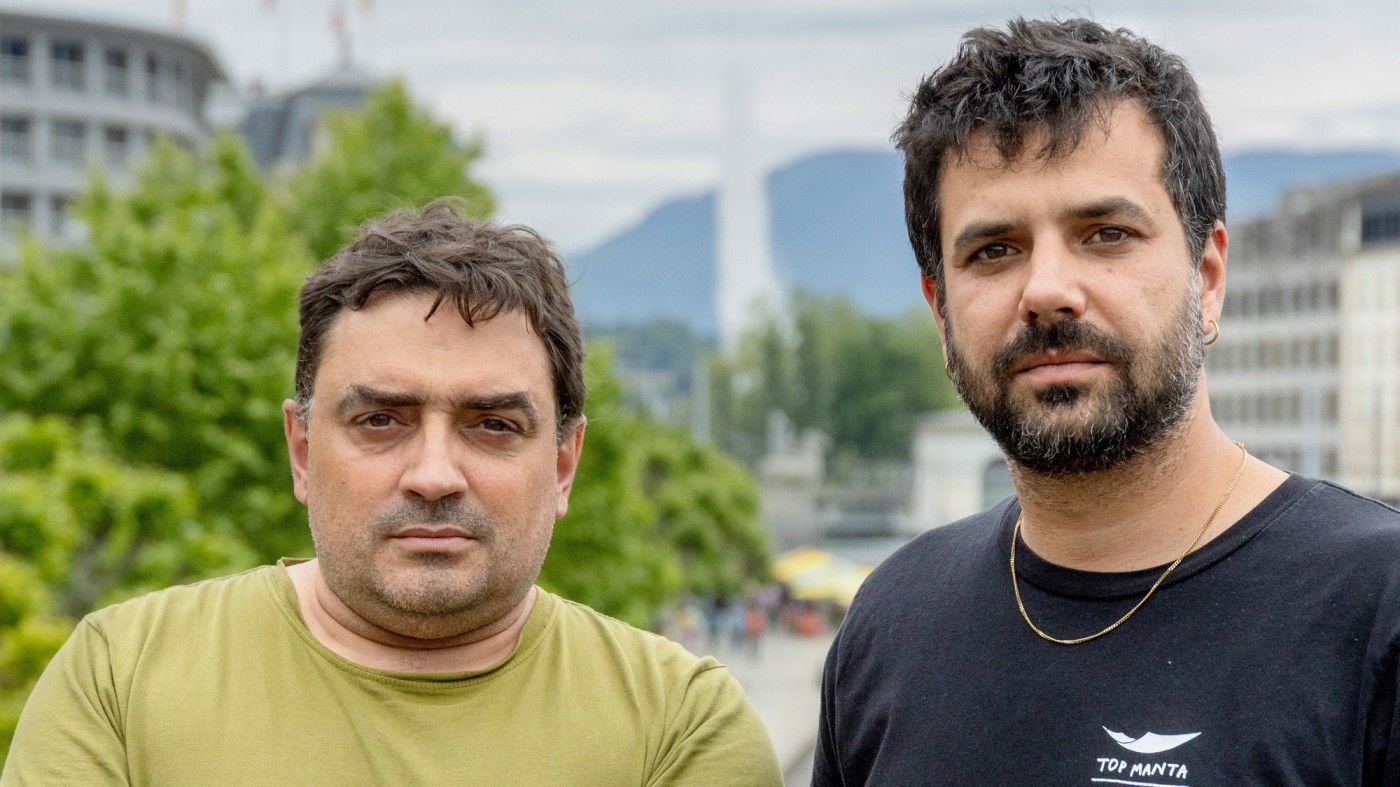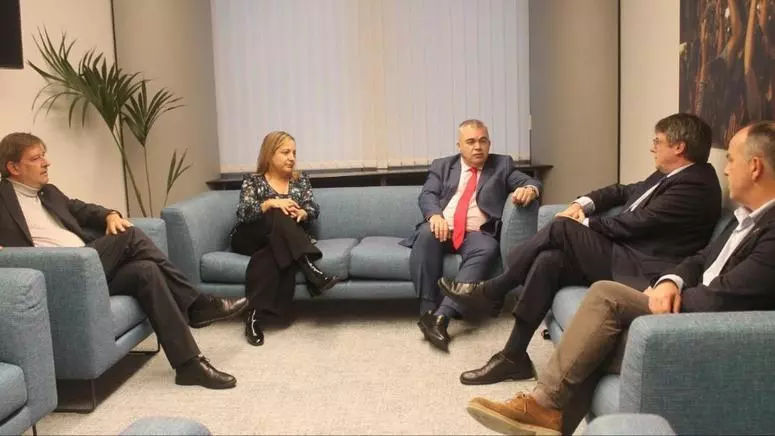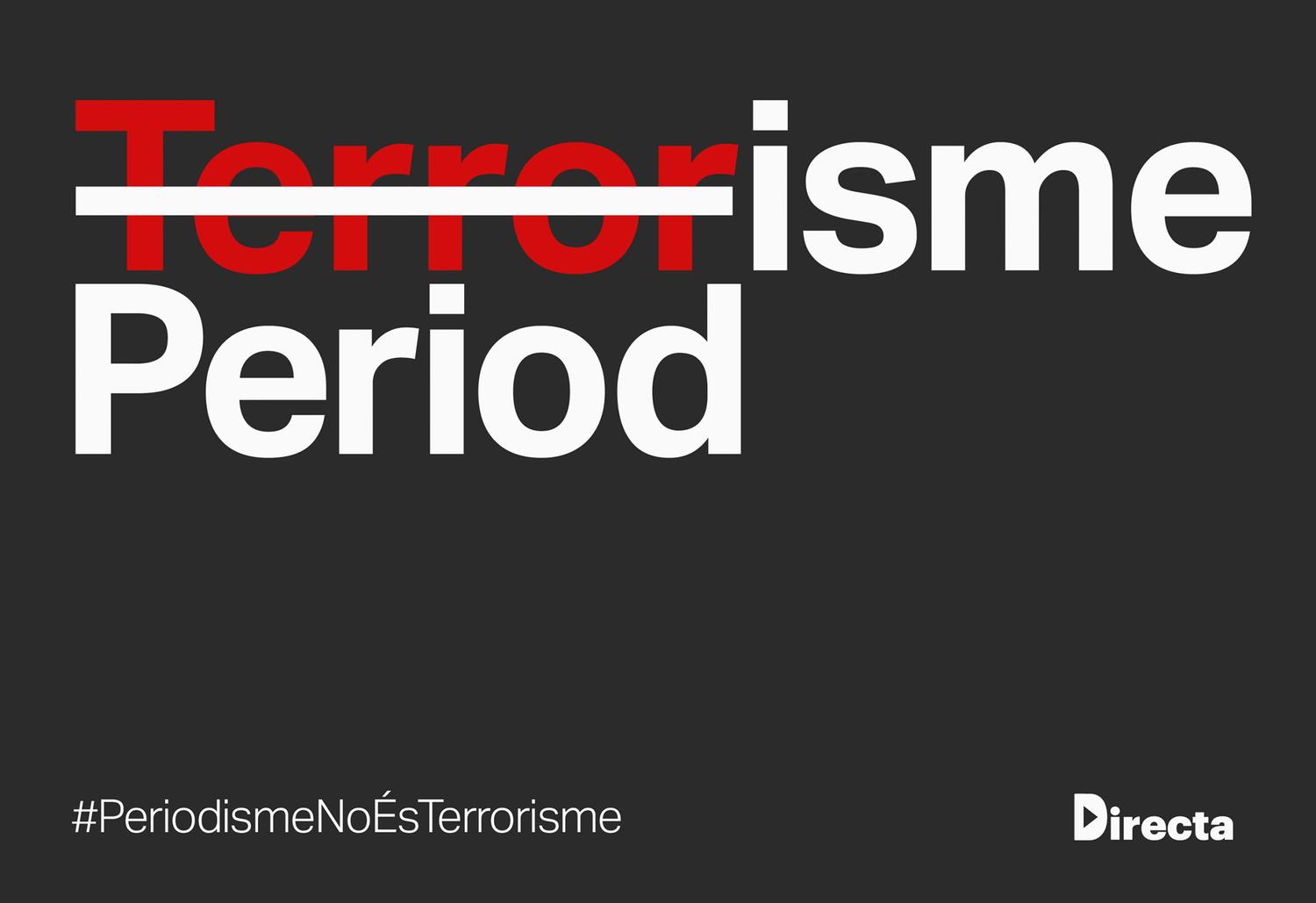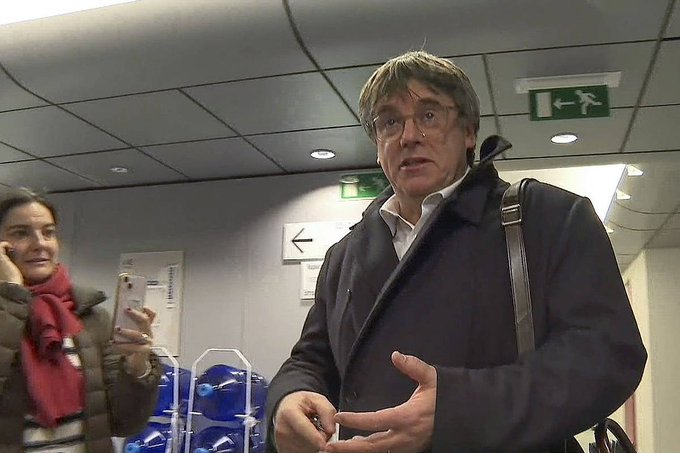"The key to strengthening the Republic is to unite the non-sovereign sectors"
- Iru Moner and Aran Llivina are members of the Libertarian Assembly Heura Negra, which is held in the Barcelonan district of Vallcarca. Listen to the citizens organized in social keys because it is essential to understand what is happening in Catalonia.
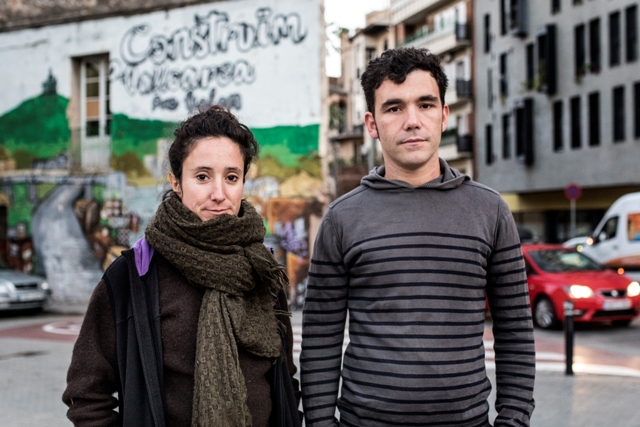
The struggle for the creation of a State will lead to contradictions in such a strong libertarian world in Catalonia. How have you reconciled the two struggles?
Iru Moner: When the consultations of the peoples began in 2014-2015, the members of the Embat organization, who came from the libertarian movement, were giving lectures. We defend the right of self-determination, such as CNT and CGT. But we cannot behave like Podemos, because we talk about abstract concepts, but fleeing implementation. If we are in favour of the right to self-determination, a referendum is an act of direct democracy. That is why we are committed to the referendum, because we are seeking to be consistent with what we say.
"Our message is not so nationalistic. The key to us is the framework of possibilities that opens the break with the state"
But our message is not so nationalistic. The key to us is the framework of possibilities that opens the break with the state: To take advantage of the opportunities opened by the dismantling of such a power linked to the Regime of 78, which came from 1939. Because all revolutions come from the antecedents of other revolutions; because power has been destabilized, because the structures of power have shaken.
Aran Llivina: I should like to add that I felt bad, because we reacted late in the Libertarian Assembly. I am an independentist, and in the libertarian assembly I wanted to take the debate three or four months before the referendum, and there was no room for it. The people of the House did not give credibility to what was happening and also produced many contradictions, so the debate was avoided, limiting the issue to commentaries on meals. Then, the week before the referendum, the fact that we had to run and quickly discuss the internal contradictions of the people of the libertarian assembly, made me angry.
"Hey, the CoR isn't a self-help group! CDRs and mobilizations, from the libertarian point of view, are to provide what each comes. If you don't have a lot of light and contradiction, stay home, nothing happens."
Contradictions have emerged in each of the mobilizations that have taken place. For example, the libertarian people brought out the controversy at the CoR in the neighborhood, contradicting the fact that on October 10 they were going to protect the Parliament, because we all have friends being prosecuted for having surrounded the Parlament building on June 15, 2011. And listen, the CoR is not a self-help group! CDRs and mobilizations, from the libertarian point of view, are to provide what each comes. If you don't have a lot of light and contradiction, stay home, nothing happens. Everyone has to see how far they are prepared to go and not go further.
Have there been a lot of people in the libertarian space who have been left out of the independence process?
I. Moner: When in 2014-2015 we started giving talks explaining that this is an opportunity, there was more disappointment than today in the libertarian sector. We equated the situation with the M15, so the same thing happened too.
-Never a revolution can be carried out to your liking. All revolutions are contradictory, dirty, you have to get your hands dirty."
Because we felt: half of the liberating movement got full of us, and the other half got staring, saying, "It's a citizen-centric movement." At our conferences we announced the following message: If what we're looking for is profound change in society, when there's such a social movement, we can't stay on the shore, except for ideological reasons. Otherwise, we run the risk of falling into the comfort of the “lounge anarchist”. It will never happen that a revolution will be made to your liking, that all workers will be super consistent, not macho, that everyone will have the same goal -- all revolutions are contradictory, dirty, you have to badge your hands, make decisions that you don't like. I believe that the most anarchist, the most social and the most organized sectors, such as Embat or some neighborhood assemblies, have been able to drive much of the libertarian movement forward to the independence process. But there are a lot of people, and I respect that, who think they have to be out, because they're not going to fight to create another state.
.jpg)
You value the self-organization of citizenship. If there is 10% left for the future, that is not a little!
I. Moner: The change took place on September 20, when the Civil Guard entered the Ministry of Economy and the Cup headquarters, people joined the work. Before I went to the activities of Empapelem [a citizens' initiative to paste the “forbidden” posters of the referendum campaign], I presented myself “hello, I am Iru, member of the neighbourhood association” and we launched the CoR of Vallcarca because we saw the possibility of a self-organization. The scenario of self-organization that took place in the days leading up to the referendum, following the general strike on 3 October, was completely closed, no one had previously imagined. They surpassed our possibilities. Two days before the referendum, the classes agreed in a direction in which the very different people -- the associations of neighbors, the associations of parents of schools, the leadership of schools, the educational unions, the various political movements -- agreed that schools had to be occupied, that there had to be surveillance posts, that there had to be food, that the doctors had to attend... All of this was an organisation of citizenship and many people have been recorded: we have all shown that the organisation of citizenship can do everything when we want.
What is your current reading?
"The situation that the street revolutionized was not planned for a referendum, let alone a referendum. In practice, we made it possible thanks to a strong popular organization, and this was not expected either by the Government of Catalonia itself, or by the sovereign movement".
I. Moner: That the street revolutionized the situation, that the referendum was not actually scheduled to take place. In practice, we made this possible by a strong grass-roots organisation, and that was not expected either by the Government of Catalonia itself or by the sovereign movement. That's what ERC is acknowledging with the self-criticism it's doing now. They planned more symbolic actions, maintaining the voting role of the Mossos and the National Police. But in practice, the fact that the referendum was so successful has led the process to an earlier point at a high speed. The brake was the popular movement, which overcame the situation.
Today, everyone is aware of what happens in the elections on 21 December. If the result of the referendum surprised us, we have a month for A21 to be more prepared. Depending on the scenario that comes out of the election, we'll see how to act.
But in the government, from ERC to PDeCAT, they're hesitating in the process of independence, if they're not going back. And the Spanish state is pulling out more paparras. All cases of corruption in Madrid are being covered by the conflict in Catalonia.
How are you the citizens who have carried out strong mobilisations?
"People are still coming to the assemblies. We're reorganizing ourselves, getting to know each other better, learning to organize ourselves horizontally, doing practical political classes and analysis of the moment in a very fast time, and with people who haven't been in politics until today -- it's great."
I. Moner: Standing. Continuously mobilizing brings fatigue. The last demonstration was multitudinous, but people are tired and it's time to be more united. But people are still coming to the assemblies. We're reorganizing ourselves, getting to know each other better, learning to organize ourselves horizontally, doing practical political classes and analysis of the moment in a very fast time, and with people who haven't been in politics until today -- it's great. The A21 will give it all, even if we have to go with the tweezers in the nose, to abort Article 155 through votes and words. But then it's going to start the pretty thing. Now is the time to gather forces, to organize, to fill the resistance boxes, to prepare...
Since the libertarian movement, how do you bring the issue of the December 21 elections?
I. Moner: We live in the situation as when the Abertzale Left was no longer allowed to be illegalized, many people went to vote, although not so much thought was given to this political project from the libertarian movement. Our vote is more contrary to Article 155 than to any political project. World
"No one in the libertarian world opens their mouths with political choices, but they all say they're going to vote. And in the CDRs it is also said that we will have to go to vote, that the citizens will be called to defeat Article 155"
But everybody says they're going to vote. Nor does the CDRs talk about who to vote, talk about going to vote, call on the public to beat Article 155.
Should they direct their forces to cope with repression?
I. Moner: We are preparing to face repression. The Global Chronicle, which has sources very close to the police, although not reliable, is decoding a possible attack: it says that those who cut off transport on the strike on November 8 were a criminal organization, which was the tactic of civil war. It seems that one might think that this is the CoR network and says that it is the National Justice that has to take the case ... The same language is being used in the Basque Country as in the 1990s and early 2000s. We are collecting money to deal with fines that can come to us by the transport court during the strike
"In Euskal Herria, the same language is being used as in the 1990s and early 2000s against the CoR. We are collecting money to deal with fines that may arise from the strike transport court."
Preparing the public. However, our struggle is more pro-positive than defensive.
Is it therefore time to address a constituent process?
I. Moner: From the CDRs we are preparing the constituent process and the most dynamic CDRs already have their Constituent Process commission.
The basic points must be articulated from the base, from society, from the power of the people. We have to bring together a number of social demands, and we should encourage the political parties to take on these bases. The CDRs would be spaces for debate, for moving to neighborhoods and towns, so that citizens, including non-sovereign people, feel involved, even if only to improve their living conditions. It is time to revitalize this Republic and to do so it is key to bring together non-sovereign sectors.
There is also more citizen representation and institutions. Are CDRs the most suitable spaces to work on the constituent process?
A. Llivin: I think so. Citizens are organised in ANC, Òmnium, CoR and political parties. I do not know what the institutional proposal is to organise the constituent process. But it is an issue that is on the table in the coordinator of the CDRs throughout Catalonia. And it's also a way to widen the base, for people to see that it's a useful tool to change their lives, to respond to their needs.
"All independence actors are going together in the process of independence, but we may not be so much in agreement with the country proposal. And that's not bad. ANC-Governor-Òmnium are Social Democrats and we have another proposal. We are not breaking the bones so that then the Republic of Catalonia is like the Republic of France or the Spanish State"
I. Moner: Since the Triangle Government-ANC-Òmnium has been working on the constituent process for a long time, even though the conditions under which we are moving take everything with great discretion. We know that some approaches are well advanced. All the independent agents are going together in the process of independence, but they may not be so much in agreement with the popular proposal. And that's not bad. It is a criticism that we can make to the triple ANC-Goberna-Òmnium, that if we work ours we are accused of breaking the unity, but that when they work theirs nothing happens. They are Social Democrats and we have another proposal. We are not breaking the bones so that the Republic of Catalonia is then like the Republic of France or the Spanish State.
Are the parties prepared to enter into this approach and to assume the foundations that the citizens have worked on?
A. Llivin: The CUP does. I hope it will be a useful tool when the decisive time comes.
I. Moner: That is in our hands. We have to work on a dense argument, without any gaps, we have to make realistic proposals, we have to be able to explain in the language of the street, and we have to ensure that the parties that are bringing this whole process forward (ERC and CIU of yesteryear) do not close the doors to us, because if that is the case, we will have to go into confrontation.
Lau agenteak lesio-delituengatik ikertzen ari dira eta horrek galarazten du 2024ko amnistia aplikatzea. Polizia horietako batek, ustez, gomazko bala batekin begi bat zartatu zion Roger Español kataluniarrari.
Walk from a train station, two friends and a hug. This hug will be frozen until the next meeting. I'll come home, he'll stay there. There, too, will be free the painful feeling that injustice wants us to catch. Jesús Rodríguez (Santa Coloma de Gramenet, 1974) is a journalist,... [+]







